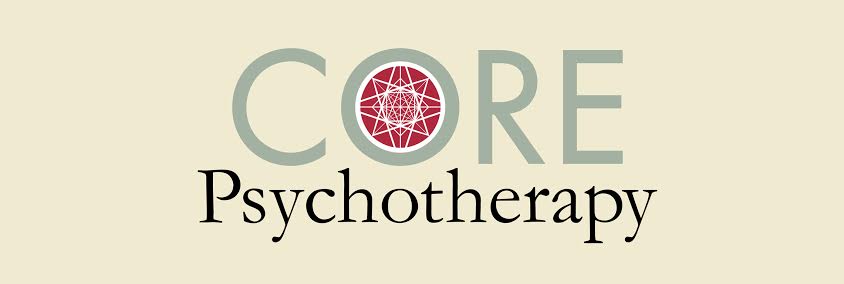COMMON MISCONCEPTIONS
1. Myth: Therapy is for "crazy" people.
2. Myth: Therapy is all about new age "fluff" and "touchy-feely" platitudes.
3. Myth: It is all about blaming your Mom and Dad for all of your problems.
4. Myth: The therapist will "fix" me.
5. Myth: Therapy will just make me too dependent upon my therapist.
At the same time as psychotherapy has become increasingly popular in our culture, representations in pop culture have oftentimes caricatured psychotherapists, and have spread a lot of misinformation about what psychotherapy entails. This section addresses some of the more common myths.
MYTH: THERAPY IS FOR "CRAZY" PEOPLE.
The value of psychotherapy to people who are suffering from mental illnesses or who are experiencing acute distress cannot be overestimated. However, many individuals with non-clinical, fairly subtle issues (e.g., a vague sense that one's life is unfulfilling, or a feeling of dissatisfaction with one's work or personal relationships) also find that psychotherapy helps them to uncover and unravel persistent inner conflicts that have been limiting them in their lives.
In reality, there are few individuals who could not benefit from a better understanding of the intricate workings of their own mind and personality. Many people find that if they work hard in psychotherapy (Click here for more detailed information about the client's role in therapy), they are able to alter old scripts and habits, improve intimate relationships, gain more satisfaction from their work, enhance their quality of life, overcome personal limits, and identify and realize other personal goals.
MYTH: THERAPY IS ALL ABOUT NEW AGE "FLUFF" AND "TOUCHY-FEELY" PLATITUDES.
Therapy is, invariably, a lot of hard work—a process more akin to going to the gym than it is going to the spa. It takes courage to honestly examine oneself and one's life. Anyone who pursues psychotherapy with sincere commitment and a desire to change is likely to discover many unpleasant aspects of his or her personality along the way. Gradually acquiring the strength to directly confront precisely those aspects of ourselves that we have spent a lot of energy avoiding is one of the implicit goals of psychotherapy. The process is difficult, though rewarding. And while psychotherapists do provide support, empathy and understanding, no successful psychotherapy can be said to be "coddling"—as is a common misconception.
IT IS ALL ABOUT BLAMING YOUR MOM AND DAD FOR ALL OF YOUR PROBLEMS.
Although it is true that psychotherapy sometimes encourages the client to explore early experiences, including formative experiences with one's parents, this process is often misrepresented. Therapy is not about "dredging up" memories from early childhood in order to self-righteously blame one's problems on the things that one's parents did or did not do. Ultimately, one does not move forward with one's life by "parent bashing," indulging in self-pity, and adopting the role of "the victim."
At the same time, early experiences do shape adult habits of thinking, feeling and behaving. As children we all learn what to expect from the world, what attitudes to adopt towards it, and what to do in order to feel safe in it. We learn basic strategies for meeting our needs and for soothing ourselves when these needs are not met. As adults we often habitually resort to these old coping strategies long after they are useful. In this sense, we are all "stuck in the past."
There is a saying in psychodynamic psychotherapy: "What saves us as children, wounds us in adulthood." Exploring the impact of early patterns in therapy can help us to alter the lingering, unhelpful habitual attitudes and responses that we adopted in childhood. A therapist helps the client recognize, validate and re-examine early feelings without getting lost in them. Therapy is about moving beyond past conflicts and wounds to take personal, adult responsibility for one’s own happiness and daily experience.
Ironically, then, whereas therapy’s reputation is that it may force you to engage in an endless rehashing of your childhood experiences, the explicit goal of therapy is just the opposite—to help you to become less subject to the influences of your past. Psychoanalyst Hans Loewald has suggested that psychotherapy can be understood as laying to rest the ghosts of the past so that we can be free to live in the present.
MYTH: THE THERAPIST WILL "FIX" ME.
Working with a psychotherapist can be compared to working with a physical trainer. Although that trainer can provide an inspirational structure for change, helping the client to identify specific goals and assess bad habits, it is always up to the client to make use of the tools provided. (Click here for more detailed information about the client's role in therapy).
MYTH: THERAPY WILL JUST MAKE ME TOO DEPENDENT UPON MY THERAPIST.
Sometimes people are reluctant to begin therapy for fear of losing their independence. The anxiety stems from the mistaken belief that the therapist will somehow take over for the client, making important life decisions for them, telling them how to feel, and so on. However, that is the role of a guru, not a therapist. A therapist does not, and cannot, interact with a client in this way. Once again, the role of the therapist is more that of an expert consultant than it is an authoritative official.
Of course, there are times when an individual may rely more heavily on their psychotherapist. It becomes an important function of therapy, sometimes, to examine the ways in which an individual may feel unnecessarily dependent on others, including the therapist. In that case, exploring issues around dependence is in the service of achieving the primary goal of therapy, which is to help the client to develop the courage to function more and more independently and confidently in all aspects of life.
